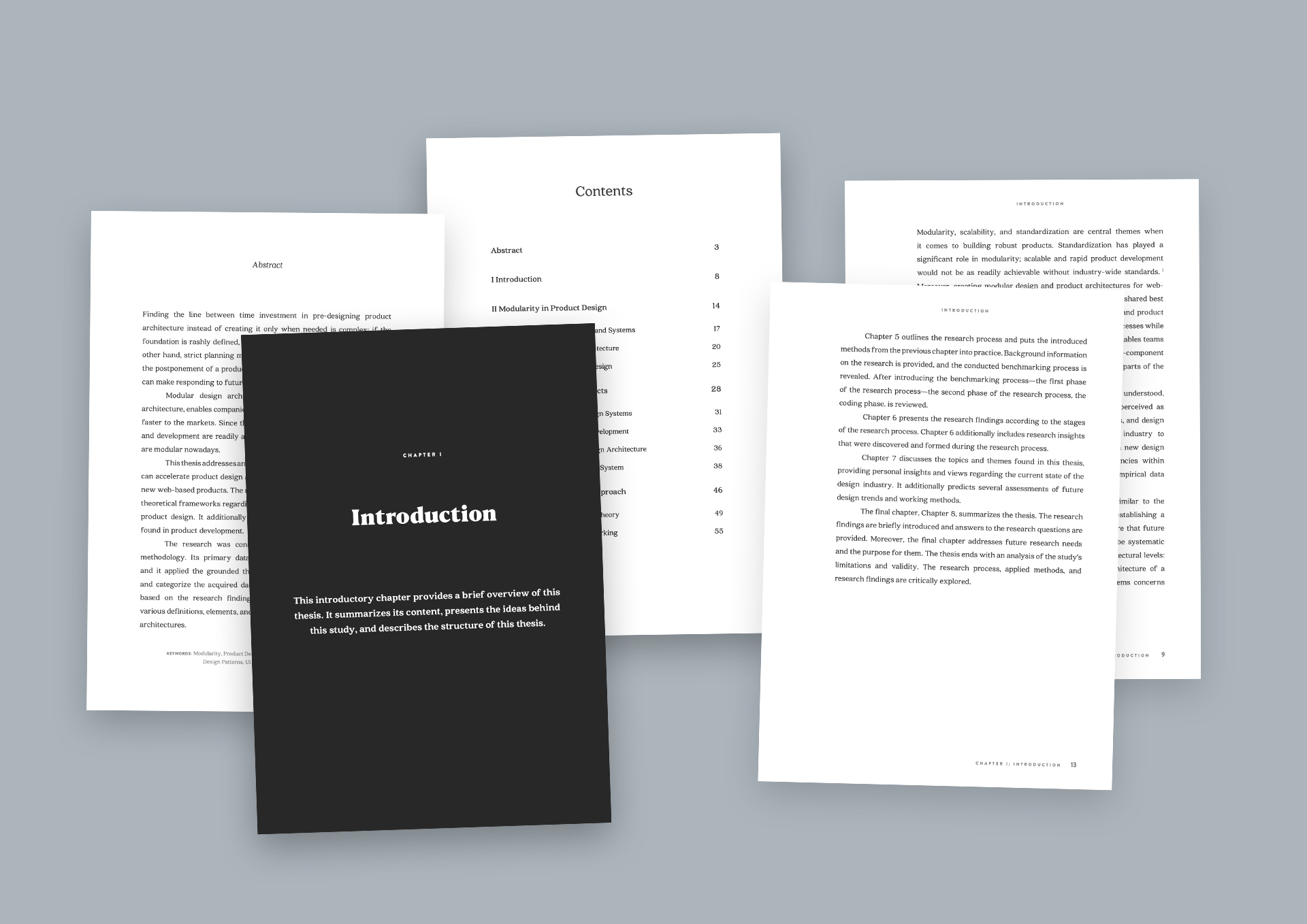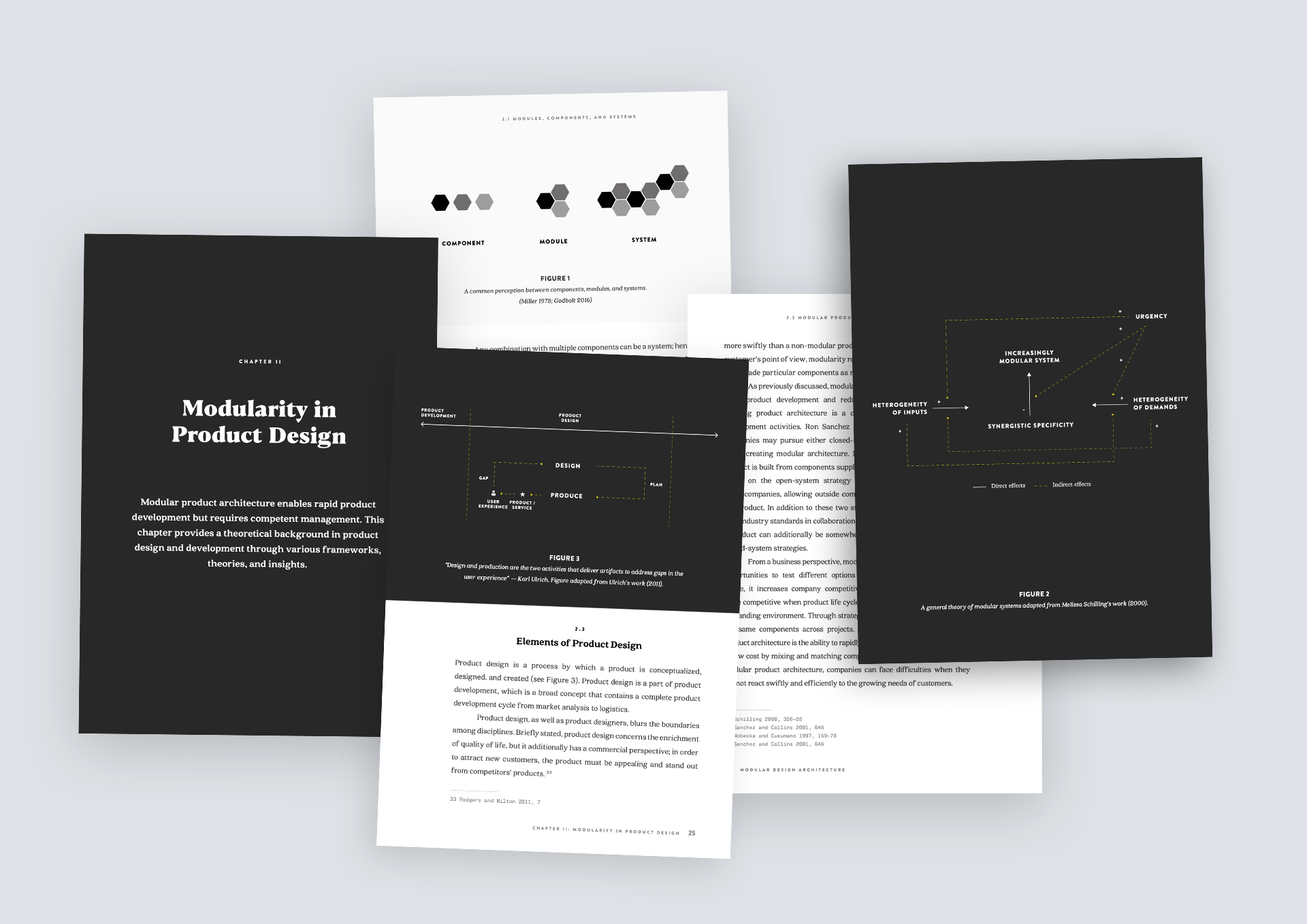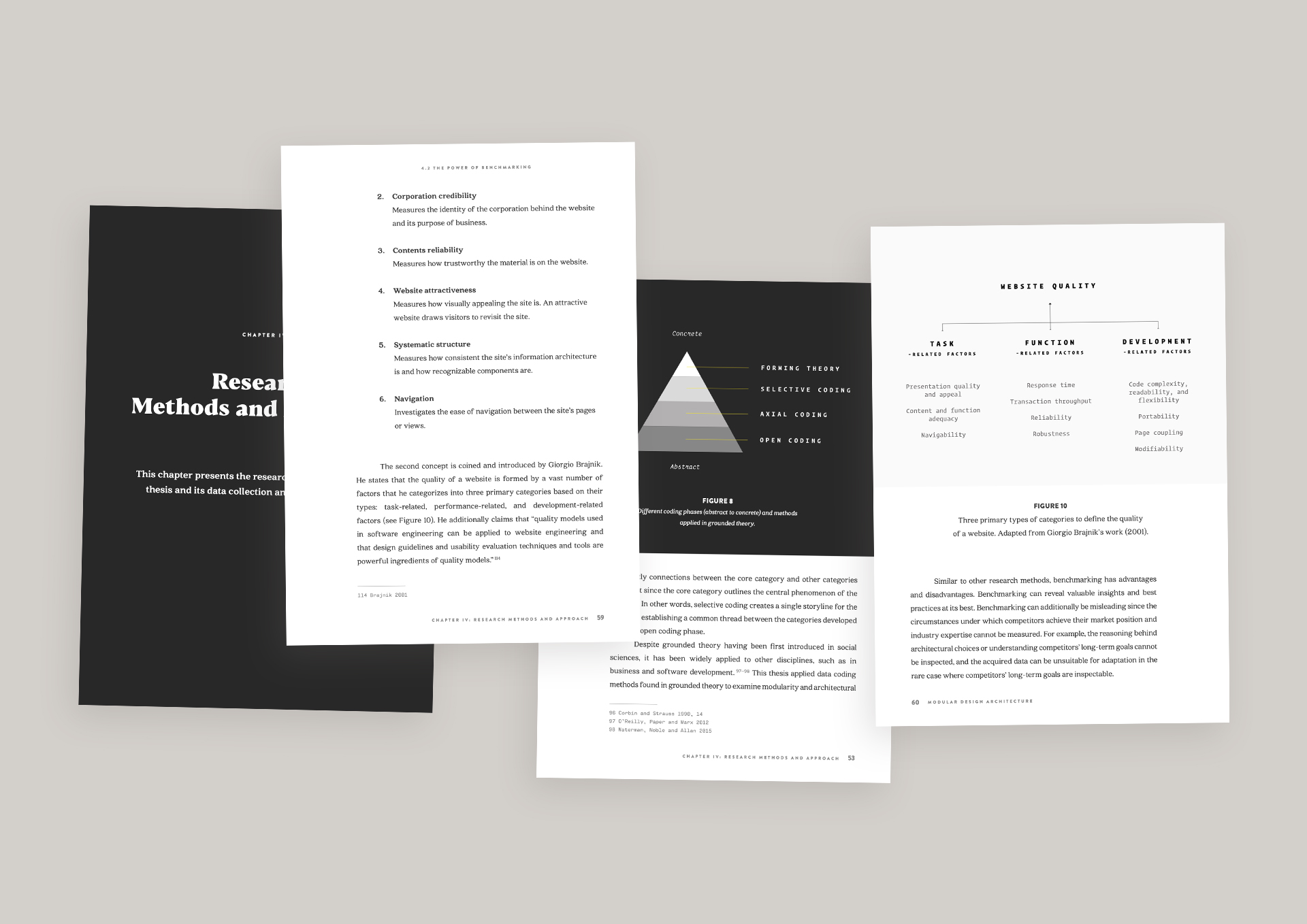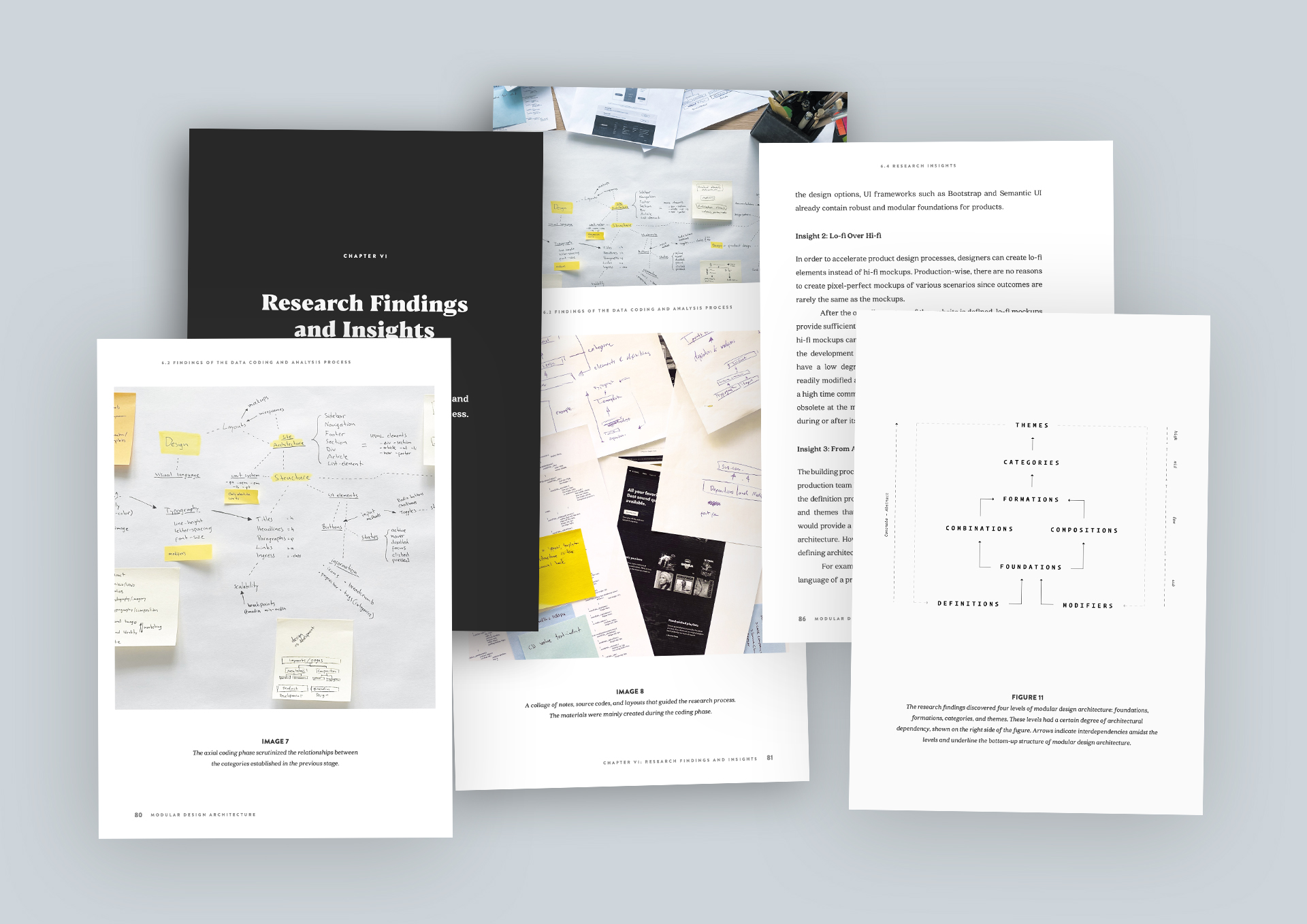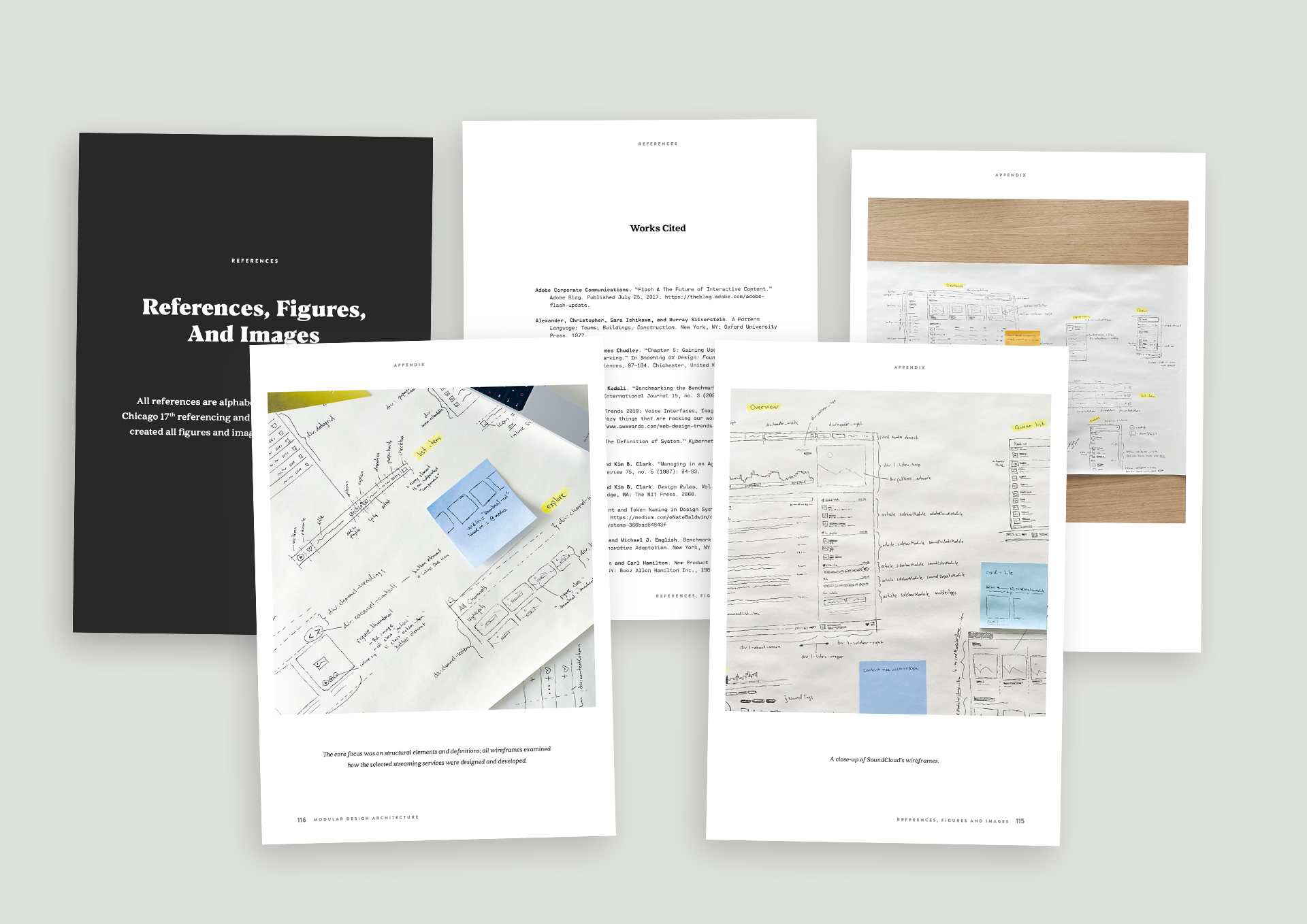- Concept Design
- Research and Development
- Print Design
Modular design architecture, combined with modular product architecture, equips companies with the tools to design, iterate, and deliver products to market faster. By leveraging pre-designed building blocks for agile development, modularity has become a cornerstone of modern, robust product creation.
However, achieving the right balance between pre-defining a product’s architecture and creating it as needed remains a complex challenge. A hastily defined foundation increases the risk of failure, while overly strict and time-intensive planning can delay production and postpone product launches. Additionally, rigid foundations may hinder the ability to adapt to future changes and evolving market needs.
This thesis investigates how modular design architecture can accelerate the product design and development processes for web-based products. Drawing from extensive research, it explores insights and theoretical frameworks around modularity, software development, and product design. It also delves into teamwork dynamics and best practices in product development to uncover strategies for success.
The research employed grounded theory methodology, with benchmarking as the primary data collection method. Data coding techniques from grounded theory were used to analyze and categorize findings, leading to a comprehensive understanding of modular design architectures. The study introduces a novel framework that synthesizes these insights, addressing the interconnections among definitions, elements, and categories within modular design systems.
By presenting this framework, the thesis offers a new approach to modularity that not only enhances design efficiency but also ensures long-term adaptability. It aims to guide teams and organizations in striking the optimal balance between planning and agility, fostering innovative and scalable web-based products.
